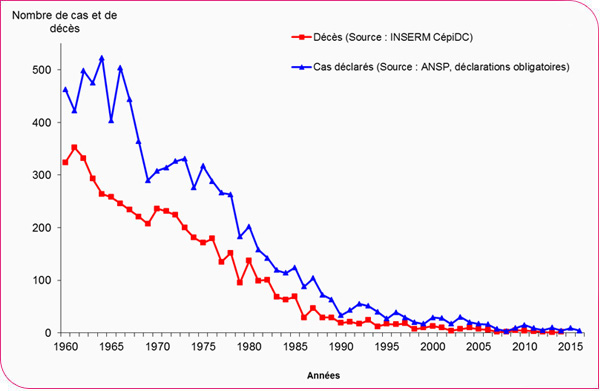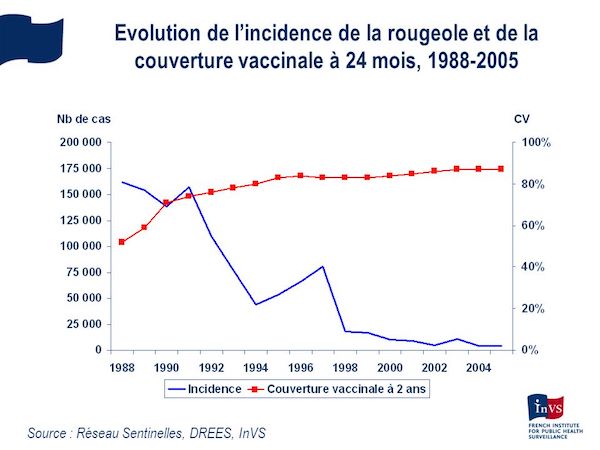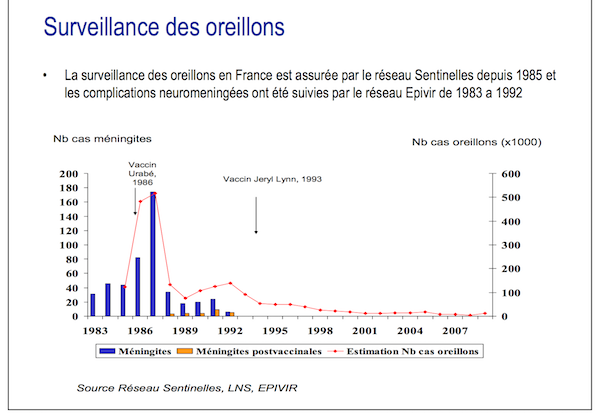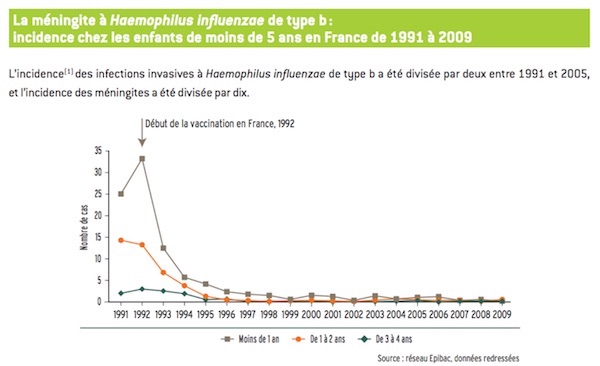The different vaccinations available have saved millions of lives around the world. Soon after their introduction, a decline in diseases was observed.

Clearly, the expansion of the vaccine obligation is difficult to pass. The protests have multiplied since the announcement made by the Minister of Health, Agnès Buzyn, in early July. On September 9, the movement Together for a free vaccination even planned a demonstration against such a measure.
Among the spokespersons for this criticism, MEP Michèle Rivasi is very active. “I am not against vaccination, in the event of an epidemic, it is necessary to vaccinate. But why do you want to go through in force… ”, she asks about Twitter. An opinion shared by many people expressing doubts about the value of vaccinating.
“I am not against vaccination, in the event of an epidemic, it is necessary to vaccinate. But why do you want to go through in force … https://t.co/HjGeXHUkEb
– Michèle Rivasi (@MicheleRivasi) September 5, 2017
Towards polio eradication
But the environmentalist forgets one element: it is precisely to prevent epidemics that the population is widely immunized. Recent developments confirm this. In many countries, the decline in vaccination coverage has led to the resurgence of infectious diseases. Measles epidemics have broken out in Italy and Romania; other European states have had to fight local outbreaks.
The situation in the United States is hardly more enviable; While the country had eradicated measles from its territory, the disease is making a comeback in successive epidemics, against a backdrop of reconsideration. As for diphtheria and tetanus, which had practically disappeared from Europe, they recently killed unvaccinated children.

Vaccination has, however, proved its worth. It is mainly thanks to her that smallpox has been eradicated from the entire planet. And the world is on track to have the same success against polio. It has declined dramatically, with only 37 cases reported in 2016. Now, the virus is only endemic in three countries: Pakistan, Nigeria and Afghanistan.

Source : Public health France
Millions of lives saved
According to the World Health Organization (WHO), 2 to 3 million lives have been saved each year thanks to the different products injected. An additional 1.5 million deaths could be avoided by improving immunization coverage.
It must be said that the mortality associated with certain diseases that can be prevented by vaccination can be very high. Tetanus, for example, is caused by bacteria that are found everywhere in the environment. Infection is associated with a 30% mortality.
Turning one’s gaze to the past provides instructive answers on this subject on the impact of the vaccination gesture. Before 1950, France had around 30 cases of tetanus per million inhabitants each year. At present, around twenty cases are declared annually in the general population. The majority of them could be avoided thanks to the reminders given in adulthood.

Source : Public health France
Very contagious diseases
The same dynamic is observed with measles, which benefits from a combined vaccine against rubella and mumps. Thanks to strong vaccination coverage, the number of cases has fallen in these three pathologies. A slight decline in coverage occurred shortly before 2011, reaching 67% for 24 month old babies.
The consequences did not wait long: a measles epidemic broke out – without reaching the thresholds preceding the arrival of the vaccine. It is precisely only at the cost of intensive vaccination that the authorities have succeeded in reducing contamination. Rubella and mumps, less contagious than the very active measles, remain at low levels.


Source : Public health France
A quick effect
One example illustrates particularly well the interest of achieving the widest possible vaccination coverage. In 1992, nearly 35 infections with Haemophilus influenzae type B have been recorded in children under one year of age.
The following year, immediately after the start of vaccination, this number drops to less than 15 cases. However, the main complications of an infection are meningitis, epiglottitis, septicemia and pneumonia. The annual number of firsts has been divided by ten.

Source : Public health France
Achieving sufficient coverage therefore seems essential, especially given the high rate of complications associated with these pathologies. It remains to be seen whether by the 1er January 2018, the laboratories manufacturing the vaccines concerned will be able to adapt their production rate to meet demand.
.















